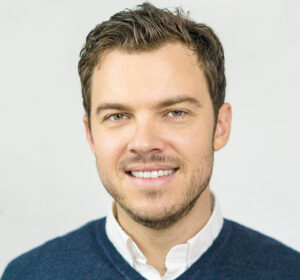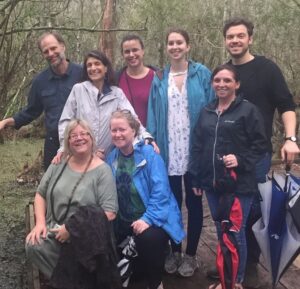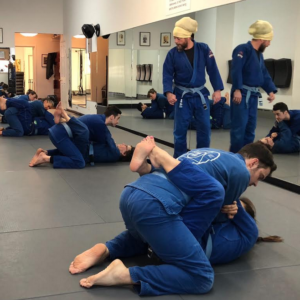Jan 25, 2021
 Our colleague, Tyler Phillips, recently designed a solo retreat for himself and we interviewed him about it. We are keen to share this interview with you because the whole idea of a solo retreat sounds so scrumptious and healthy after the year we’ve all had! GLP has recently recognized Tyler’s expertise with the new title of Senior Partner. In his reflections, you’ll discover some of the many insights and skills he brings to this new role.
Our colleague, Tyler Phillips, recently designed a solo retreat for himself and we interviewed him about it. We are keen to share this interview with you because the whole idea of a solo retreat sounds so scrumptious and healthy after the year we’ve all had! GLP has recently recognized Tyler’s expertise with the new title of Senior Partner. In his reflections, you’ll discover some of the many insights and skills he brings to this new role.
Hi Tyler. It’s so nice to be with you today. Thank you for taking the time to sit with us and share a little about yourself, your personal learning journey, and how you see the learning-centered approach impact your clients and their work in the world.
You know, I just spent a few days on a solo retreat in the Catskill mountains. As I reflected on the year past, 2020, which was an incredibly tough year for humanity and the world, a word that kept showing up in my journaling and notes was “gratitude.” Which was surprising for me to realize. I am so grateful to be part of Global Learning Partners and for this opportunity to share my story and perspective.
A solo retreat in the mountains sounds interesting. What does that entail? Is it something that you do often?
This was the first time that I went away alone for an annual reflection. I always look forward to the GLP retreats  which we do once or twice a year, but this year it wasn’t possible of course. It’s interesting because I design and facilitate retreats in my work, but this is the first time I’ve applied my planning and designing skills to my own, solo retreat. My design included personal journaling, meditating, reading, reflecting on the year past and goal-setting for 2021. I also build in exercise and time to play music and just relax. It’s pretty nice! And let me just say – show gratitude again – for my wife, Kiti who was holding down the fort back home with our 4-year-old daughter while I was away.
which we do once or twice a year, but this year it wasn’t possible of course. It’s interesting because I design and facilitate retreats in my work, but this is the first time I’ve applied my planning and designing skills to my own, solo retreat. My design included personal journaling, meditating, reading, reflecting on the year past and goal-setting for 2021. I also build in exercise and time to play music and just relax. It’s pretty nice! And let me just say – show gratitude again – for my wife, Kiti who was holding down the fort back home with our 4-year-old daughter while I was away.
We know that your background is in Financial Empowerment. What is that and how did you come to work with GLP?
Financial Empowerment can take different forms. In my experience, it’s an ecosystem of community-based organizations, financial coaches, and financial institutions working in collaboration to alleviate financial challenges and improve stability for low and middle income families.
I often work with clients from that sector to develop and facilitate training, conduct focus groups with stakeholders, be a thought partner in planning a new service or program, that sort of thing. While I have content expertise in Financial Empowerment, my technical expertise is in learning, training, and facilitation to support my wonderful colleagues in other work across a variety of sectors.
 I began working with one of the country’s top service providers, Neighborhood Trust Financial Partners in 2009. It was there I met Val Uccellani when she was contracted to help design a financial workshop for adult learners. After I met Val and saw how this approach transformed people’s relationship with money, I felt like I had just seen magic. Learners were engaged like I hadn’t seen before. I saw postures change, backs straighten, comments and glances of participants seeking connection with each other. More than ever, I saw a flow and exchange of questions, curiosity, ideas and dialogue amongst learners and facilitators. I was in awe and wanted to know how she did it. That’s what got me hooked. Over the years I worked with GLP several times as a client and in 2017 I found myself looking for a new opportunity. I was then invited into GLP as a Core Consultant and just recently became a Senior Partner.
I began working with one of the country’s top service providers, Neighborhood Trust Financial Partners in 2009. It was there I met Val Uccellani when she was contracted to help design a financial workshop for adult learners. After I met Val and saw how this approach transformed people’s relationship with money, I felt like I had just seen magic. Learners were engaged like I hadn’t seen before. I saw postures change, backs straighten, comments and glances of participants seeking connection with each other. More than ever, I saw a flow and exchange of questions, curiosity, ideas and dialogue amongst learners and facilitators. I was in awe and wanted to know how she did it. That’s what got me hooked. Over the years I worked with GLP several times as a client and in 2017 I found myself looking for a new opportunity. I was then invited into GLP as a Core Consultant and just recently became a Senior Partner.
So you’ve experienced working with GLP both as a client and now as a Senior Partner. What do you notice that’s different about being on the inside of the company now?
For starters, GLP is just a very special group of people. Not only the core team and staff but the network of practitioners around the world is filled with interesting, authentic, smart, and caring people. So to be connected to these groups and have chances to learn from them and work on all different sorts of projects feels unique. It feels like we are all on our individual journeys of life and work and when we cross paths it feels like we’re seeing an old friend – someone you can trust and you know will listen and support you. We often use this metaphor of being on a journey – as practitioners, as learning-centered organizations – and it’s so fitting. Life is a journey and that journey for me is enhanced when you’re able to walk alongside individuals who you enjoy, respect, and admire. Folks you can laugh with and learn from.
What other paths have you been exploring and how do they converge with your work as a learning expert?
I began training Brazilian Jiu Jitsu in 2016. Learning and practicing the martial arts has contributed greatly to my life and work. In my martial arts training, I started noticing lots of overlap with learning-centered  approaches. This was so great to realize two things I love are complementary. I would go to the dojo and train, then get back to my desk and begin to work or join a meeting and be able to bring in some of the principles we just studied at the dojo. In Jiu Jitsu and the learning-centered approach, the learning is in the doing and deciding. I always look for wisdom and learning in one area and try to apply it to another area of my life.
approaches. This was so great to realize two things I love are complementary. I would go to the dojo and train, then get back to my desk and begin to work or join a meeting and be able to bring in some of the principles we just studied at the dojo. In Jiu Jitsu and the learning-centered approach, the learning is in the doing and deciding. I always look for wisdom and learning in one area and try to apply it to another area of my life.
It’s so great how these paths converged for you. For those who aren’t familiar with martial arts training, can you tell a little bit more about some of the principles you’ve been taught in Jiu Jitsu that apply to design and facilitation?
The principle that I’ve been exploring lately is the concept of Indomitable Will. This means “staying on the mountain” no matter what challenges arise in front of you. It’s simple but very difficult, perhaps the most difficult thing to do as a martial artist. Never give up no matter what obstacles you encounter, internally or externally. I find myself encouraging clients to do the same thing. Oftentimes the work and energy that goes into designing an effective meeting or planning out a learning event for program participants seems overwhelming, too much to think through and consider. Too slow – ‘we needed this done yesterday!’ kind of thinking. It’s when faced with those obstacles that individuals often veer off the path and begin to default to old habits and ways of working. Winging it. Using a PowerPoint presentation and reading the slides word for word.
It’s at that point the learning suffers and change and transformation and impact is jeopardized. I encourage my clients, and the changemakers I work with to employ this strategy to help stay on the path – focus on the positive. No matter how seemingly small, focus on one thing you do well as a designer or facilitator after each event. I asked a really good open question…I sent out all the meeting achievements ahead of time…I sent thank you notes to all the focus group participants. Do not focus on the negative. It is human nature to immediately go to what you did wrong and obsess over what you did and why. That type of thinking does not serve our work as learning-centered practitioners. It’s easy to get down on yourself when something goes wrong or misses the mark. I always come back to – almost daily – the concept of focusing on the positive so that I can stay “on the mountain.”
Very cool. It’s been nice getting to know you a bit more. What advice or wisdom would you offer our readers, those who are new to the learning-centered approach or those who have been “journeying” for a while.
I’ve been focusing a lot on listening lately. Being curious and authentically interested in others – their stories, their backgrounds, their needs as clients and professionals. Listening to what they are truly trying to communicate.
I’m also a big believer in seeing this work as a discipline that requires concentration and attention over time. I’m working everyday to practice this discipline and stay on the mountain.
Tyler Phillips is a Senior Partner at Global Learning Partners. He lives in Brooklyn, NY with his wife and daughter. He was interviewed by Jeanette Romkema and Valerie Uccellani for this extended blog post.



